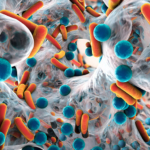Shaping your body
Movement is one of the fundamental functions of the human species that evolved by developing all types of motor activities, such as walking, running, gathering, exploring, fighting, and running away. All forms of movement are possible thanks to the lean mass that forms our muscles, tendons, bones.
The loss of muscle mass can be the consequence of conditions such as ageing, andropause, menopause, or lack of exercise, immobilisation, being bedridden, traumas, reduced intake of proteins with food.
Aside from reducing muscle mass, the loss of lean body mass entails an increase of the percentage of body fat, increased risk of falls, less autonomy, higher vulnerability to external aggressors and germs. The loss of muscle mass with the feeling of more effort and consequent reduction of exercise results in further loss of muscle mass: this creates a “vicious circle” that aggravates the situation.
Maintaining or improving an optimal muscle mass can also be a requirement for those who exercise or do sports regularly or for those who would like to shape their body. The very term “bodybuilding” means “shaping the body” and refers to daily training with sets of exercises performed with calibrated equipment and weights that aims to “sculpt” the muscles.
Under the various conditions considered, daily movement and training, with the intake of amino acids through food and food supplements, make it possible to favourably influence the body composition and physical condition, stability, motor flexibility, and bone density, shaping our body and preventing its deterioration.
Essential amino acids
Amino acids are the building blocks of all proteins, hormones and enzymes in our body. They are classified into ‘essential’ and ‘non-essential’: essential amino acids must come from food (leucine, lysine, valine, isoleucine, threonine, methionine, phenylalanine, tryptophan), while non-essential amino acids can be synthesised by the body.
The mix of purified essential amino acids, in the right quantity and the correct reciprocal quantity ratio, in accordance with the instructions of the World Health Organization (WHO), is a source of proteins with very high biological value and high bioavailability, which supports lean body mass and muscle function, without producing nitrogenous waste that overloads the kidneys in case of reduced intake of these nutrients or an increased need for them. The daily intake requirement of essential amino acids for adult and elderly persons weighing an average of 70 kg is 70 grams (1 g/Kg).
The intake of essential amino acids as a nutritional supplement improves muscle trophism and tone, increases muscle protein synthesis, counteracts loss of lean mass due to various causes, and optimises physical and sports performance.

 Specchiasol
Specchiasol



 Specchiasol
Specchiasol Specchiasol
Specchiasol